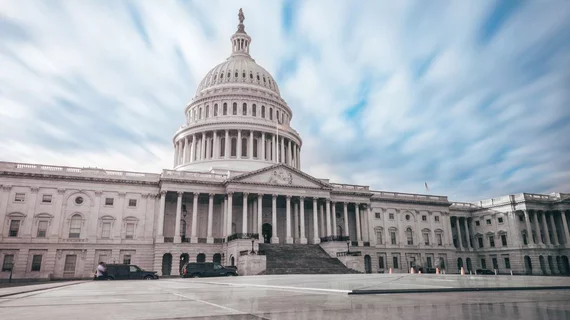Bipartisan gun violence proposal earns applause from medical groups
The American Medical Association (AMA) applauded a bipartisan proposal that addresses gun violence.
The proposal, announced June 12, includes investments for several mental health services and school safety resources. The proposal comes after several healthcare CEOs signed onto a letter demanding action from Congress on gun violence. The package also includes protections for domestic violence victims, crackdowns on those evading licensing requirements, an enhanced review process for buyers younger than 21 and more.
“Today’s bipartisan blueprint to address gun violence is a breakthrough that shows compromise is possible, common ground can be reached, and that Congress can take commonsense steps to keep deadly weapons out of the hands of people who are a significant danger to themselves or others,” AMA President and CEO Gerald E. Harmon, MD, said in a statement. “This agreement will save lives.”
The package was proposed by a group of bipartisan Senators, including Chris Murphy (D-Conn.), John Cornyn (R-Texas), Thom Tillis (R-N.C.), Kyrsten Sinema (D-Ariz.) and others.
“Families are scared, and it is our duty to come together and get something done that will help restore their sense of safety and security in their communities,” reads a joint statement from lawmakers involved in the bill. “Our plan increases needed mental health resources, improves school safety and support for students, and helps ensure dangerous criminals and those who are adjudicated as mentally ill can’t purchase weapons. Most importantly, our plan saves lives while also protecting the constitutional rights of law-abiding Americans.”
The AMA has previously voiced that gun violence should be considered a public health emergency.
“The measures announced today must be only a first step in confronting the public health crisis of gun violence,” Harmon said. “The AMA and the American people, by large majorities, support additional, significant steps to stop this scourge. We urge all senators to support this deal and to continue working together to prevent the type of violence we as physicians see on a daily basis in emergency departments, trauma centers and morgues in every single state of our country.”

